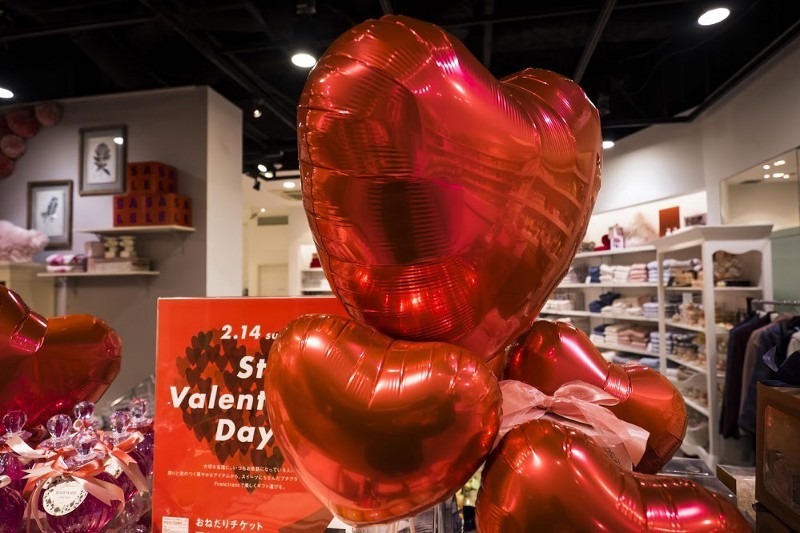Kizuna, the Japanese word meaning “bond,” was undoubtedly one of the most-used words over the past year. It all started with Suntory’s use in its post-quake advertisements of Kyu Sakamoto’s famous songs from the early 60’s, Ue o Muite Aruko (English title — “I Look Up When I Walk” and Miagete Goran Yoru no Hoshi Wo (English title: “Look up at the Stars in the Night”).
Suntory made 30 different versions of TV commercials with 71 young singers along with famous actors, each singing a verse of the songs in relay. The commercials began airing from April 9th, 2011, and ran for approximately one month. Many were touched and their hopes revived by these two familiar and nostalgic songs, as well as the symbolic use of relay singing to signify that we are all bonded together as one.
Throughout 2011 and onward into 2012, the word kizuna has been used to widely in advertising campaigns, television shows, and regarding products throughout Japan this year. Not surprisingly, it was named in U-can’s “Top Ten Words of the Year” award.
In short, the 311 disaster re-emphasized the importance of kizuna between family, friends, partners and others. Many now speak of feeling more connected and of a deepening commitment to fulfilling the “non-material” aspects of life (such as time with family and friends, and time spent on hobbies).
While the final sales results are not yet in, this year’s Valentine’s Day sales were expected to benefit from this greater psychic largesse.
According to confectionary company Morinaga’s survey in December 2011, more than 70 percent of men/women answered that they “feel more appreciative of the people around them since the disaster.” In addition, the percentage of those who planned on giving chocolates to family members had increased to 50%, up from 40% in 2010.
Playing on the kizuna theme, stores such as Tobu Department Store directly named their obligation chocolate section Kizuna Choco, while Tokyo Sky Tree promoted giant bars of chocolates that people could share and enjoy while eating with others.
Most credit Kobe-based confectionary and cake maker Morozoff Ltd. with having kicked off the tradition of Valentine’s Day in Japan in 1936 by advertising that women should give its hand-made chocolates to men. By the 50s, its heavy promotion of the holiday prompted other confectioners followed. Today, the practice of women giving chocolate to their man has expanded to include “obligation chocolate” (giri-choco, given to work colleagues and bosses), “friend chocolate” (tomo-choco), “reverse chocolate” (gyaku-choco, given by men to women), and even “self-reward chocolate” (gohoubi-choco, luxury chocolate bought for oneself as a special indulgence).
Over the years, we’ve also seen widening interpretations of Valentine’s Day product offerings, and this year was no exception. Tokyu Hands featured everything necessary to make homemade candy, cookies and roll cakes, including pans, cupcake cups, ingredients and boxes and wrappings of all types and sizes. I even saw Valentine’s Day-inspired gifts meant for beloved dogs and cats! Other expansions were perhaps more unusual, including:
– Domino’s heart-shaped pepperoni and mozzarella pizza (delivered in a heart-shaped box, of course);
– “Nama Pasta Monster” (nama meaning “raw”), a limited time menu item from Printemps Ginza’s pasta restaurant, consisting of pumpkin pasta with cream sauce, topped with chestnuts, cashew nuts, and bacon, and then finished with a special chocolate sauce); and
– Kagawa Prefecture’s ninniku choco (garlic chocolate), which uses black garlic containing three times more polyphenol than regular garlic, as a way to impart even greater health benefits.
With a warmer-hearted consumer psyche and such a plethora of choices, we can expect that Valentines’ Day sales should indeed have been sweet!
Debbie Howard is Chairman of CarterJMRN KK, and President Emeritus of the American Chamber of Commerce in Japan. She is also a Visiting Professor of marketing at Sophia University.
Originally Posted in Nikkei Weekly, 27th February 2012
CarterJMRN is a strategic market research agency that has been helping clients with consumers and businesses in Japan and beyond since 1989.
We believe that, although the terrain you face in building a successful marketing strategy and activation path sometimes seems obscure, the path to success is knowable and that the consumer is the guide who will show you the way.
Find out more and get in touch on our site

